In Bro. Robert Davis’s recent TLP article, “What Came You Here to Do?”, he reminded his readers of one of the first and most important questions and answers we encounter as Freemasons. Many of us have fond memories of learning the questions and answers required to prove our proficiency in one degree before moving on to the next – our Masonic catechism. At the very least, it provided opportunities for us to meet and sit with more experienced and knowledgeable brothers in the Craft. In most cases, these opportunities included taking time to learn more about each other, and even to bond as men with shared values and intentions. In somewhat fewer cases that I know of, these sessions involved discussions about the historical content and meaning of the questions and answers. In the rarest cases, teachers have actually challenged their students to think deeply about the symbolic and philosophical dimensions of the catechism, its allegorical allusions to the work of Masonry that we identify when we answer why we became Masons and what we came to do. This last way of working with the catechism is precisely what Bro. Davis demonstrated in his article. Yet the rarity of such contemplation actually occurring in our lodges begs some important questions.
1. Why isn’t the catechism used as a platform for actually developing deeper insight into the teachings of Masonry, and the ways those teachings are meaningful to us as individuals?
One reason that seems obvious for this lacking is that the teachers simply haven’t been taught to do it; it isn’t part of the tradition of advancement in most lodges. Therefore, even if the idea of doing so occurs to anyone, it gets pushed aside because it is considered unnecessary to, or even distracting from, the new Mason’s advancement to the next degree. Of course, this points to an underlying assumption of what it means to advance in Masonry, and that assumption is that it is mostly about getting through the degree ceremonies as quickly as possible in order to be a full member of our fraternity.
A second reason is undoubtedly that many teachers don’t feel prepared to facilitate such a process. To begin with, they have no personal experience of it from their own advancement. In addition, they may not understand the value or the methods of encouraging others to think about symbolism and philosophy. Similarly, they may also be uncomfortable with a process that is actually more about helping a brother explore and clarify his own questions and understandings than simply memorizing the right words. These issues indicate that, all too often, the highest aims of Masonry taught in our rituals aren’t the actual priorities of the way Masonry is practiced in our lodges. In short, our behavior suggests that we aren’t primarily concerned with transforming ourselves and each other into more intellectually, emotionally, and behaviorally virtuous men.
2. What is being missed by not using the catechism in this way?
Perhaps by now it is obvious that the shortest and most direct answer to this question is that we are missing out on Masonry itself! We aren’t really doing Masonry, not really being or even becoming Masons, craftsmen of Wisdom, Strength, and Beauty. We’re just talking about these things in very grandiose and flowery ways, almost as if the whole thing is a big joke, a farcical façade over less noble, less demanding, and less rewarding purposes. If we want to get more specific, all we have to do is review our rituals and catechisms, taking note of all the personal, moral, social, and spiritual benefits they literally and figuratively suggest. The less we do Masonry, the less we unfold everything it holds in waiting.
3. What can we do to encourage getting the most out of the catechism?
To begin with, individual Masons must recognize the opportunities provided by the catechism. Next, they must understand the value of those opportunities. Then they must commit to take advantage of those opportunities for themselves and ensure them for their brethren. Enough brothers making such a commitment can change the culture of a lodge, a district, or even an entire jurisdiction.
In a culture that makes the most of the catechism, brothers talk to each other about the important opportunities it provides for attaining deeper insight into ourselves, our fraternity, and our lives outside the lodge. We emphasize, celebrate, and reward the depth of one’s catechism experience rather than the speed and accuracy with which one performs rote memorization. Every question, every answer, no matter how simple it seems, is actually taken as a veil that conceals as well as reveals Masonic light. We seek and exchange practical tips on how to facilitate such processes instead of simply providing lecture and repetition of the questions and answers. We support our brothers in exploring the very poignant questions and possibilities raised by the words of our rituals. We bare our souls and listen carefully to each other, and share our struggles and our successes in becoming more virtuous men.
4. When will we start doing it?
Yes, when?
________________________________________
THANK YOU FOR READING THE LAUDABLE PURSUIT!
IF YOU ENJOYED THIS PIECE, PLEASE FEEL FREE TO SHARE IT ON SOCIAL MEDIA SITES AND WITH YOUR LODGE.
For more information on Bro. Chuck Dunning: CLICK HERE
Also, visit us on Facebook: https://www.facebook.com/TheLaudablePursuit
_______________________________________
SHOW YOUR SUPPORT
If you enjoyed this content, you can show your support by visiting the "Support TLP" page in the header.



